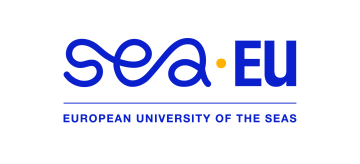ORCID ID 0000-0001-9728-3518
Dr Noya Gallardo is a Senior Lecturer in the Department of English Philology at the University of Cádiz. Her research interests include Semantics, Specialized Languages, Translation, Terminology, Systemic Functional Grammar and Corpus Linguistics. Her research is now oriented to the knowledge transfer. She works with researchers from the University of Córdoba on a multidisciplinary research project on wine terminology, 'Weinapp', Sistema Multilingüe de Información y Recursos Vitivinícolas', Its final goal was to develop and design an App for mobile phones on wine terminology, in English, French, German and Spanish, 'WeinApp', which was recently launched though the research team is still working on it.
Our Research Group is made up of researchers carrying out different projects and focusing on "research and knowledge transfer", such as wine and tourism. We collaborate with researchers from the University of Córdoba in a project on multilingual wine terminology ('Weinapp', Sistema Multilingüe de Información y Recursos Vitivinícolas') and also with the University of Málaga's researchers, on tourism, "SentiTur: Sistema de monitorización de opinión de usuarios de recursos turísticos andaluces basado en análisis de sentimiento y análisis visua"l) Finally, we also collaborate with Dr Montemagni (Head of ILC) y Dr Venturi, researchers of the Istituto di Linguistica (CNR) Pisa.
Pragmatics, Syntax, Semantics, Computational Linguistics, Corpus Linguistics, Contrastive Linguistics, Translation (Spanish, English, French), Language Learning and Language Teaching
Creation, with the collaboration of some researchers of the ILA, of a linguistic corpus (French, Spanish and English) on onomatopoeias, as well as an online dictionary to be used when translating.
Compilation of a wine terminology corpus (Spanish, English, French, German) in order create to and design an application for mobile phones, WeinApp.
Building up a large corpus of English as a 2L classified according to CEFR levels and formed to train statistical models for automatic proficiency assessment.
1. La influencia de la era digital y de la globalización en las terminologías específicas. En Estudios sobre traducción e interpretación: especialización, didáctica y nuevas líneas de investigación
Noya Gallardo, C., Mª A. Zarco Tejada, Mª C. Merino Ferradá y Mª I. Calderón López
Tirant Lo Blanch (2019) Vol: . Pgs: 89-110
Zarco-Tejada, Mª A.
Digital Scholarship in the Humanities.2019. 34:3. Pgs. 661-675.
Zarco-Tejada, Mª A.; Lazari, A.
Revista de Llengua i Dret. 2017. 67. Pgs. 237-254
4. On the left periphery of Spanish indirect interrogatives
García Núñez, José María
Probus. 2020. Vol 1. Núm: 32 . Pgs. 55–92
5. Quand l’adverbe en ment se fait erreur ou la chasse aux adverbes.
MORA MILLAN, LUISA
Lacheny, Marc/Rentel, Nadine/Schwerter, Stephanie (dir.) Errances, discordances, divergences? Approches interdisciplinaires de l'erreur culturelle en traduction. 2019. Pgs. 43-60.
